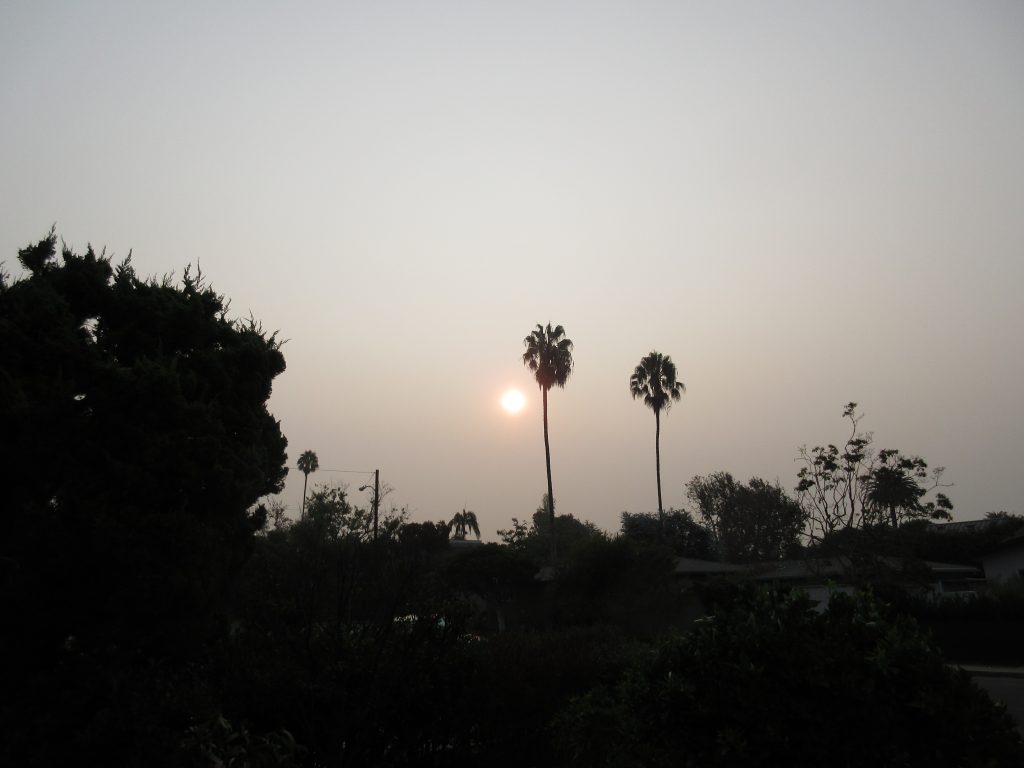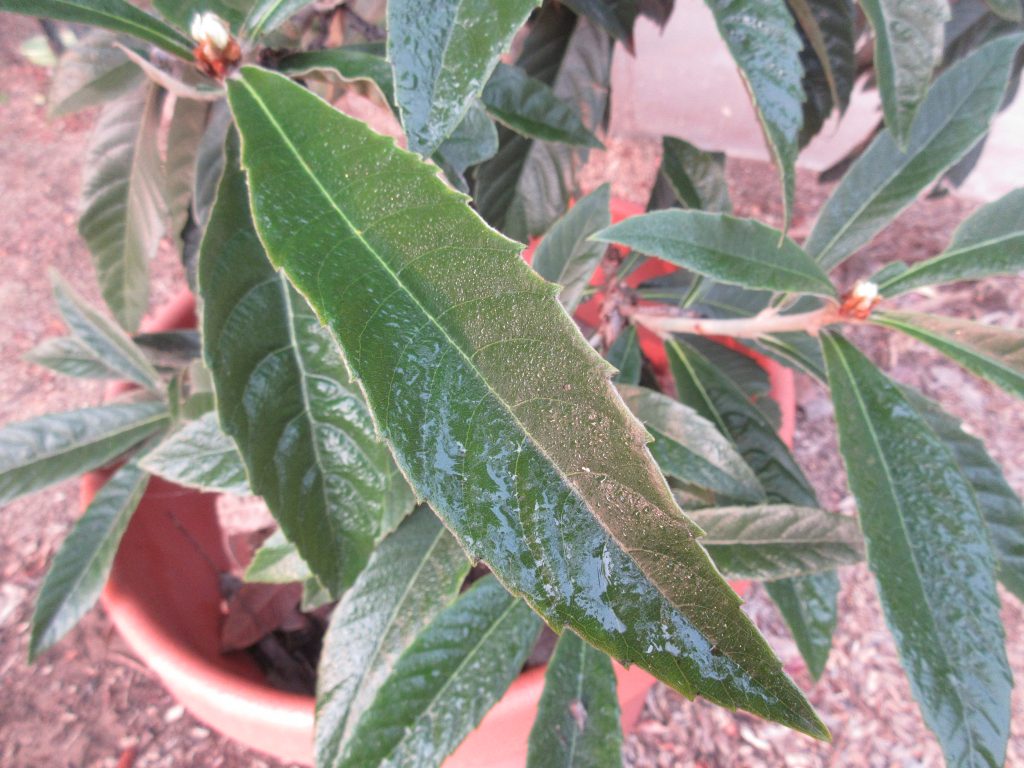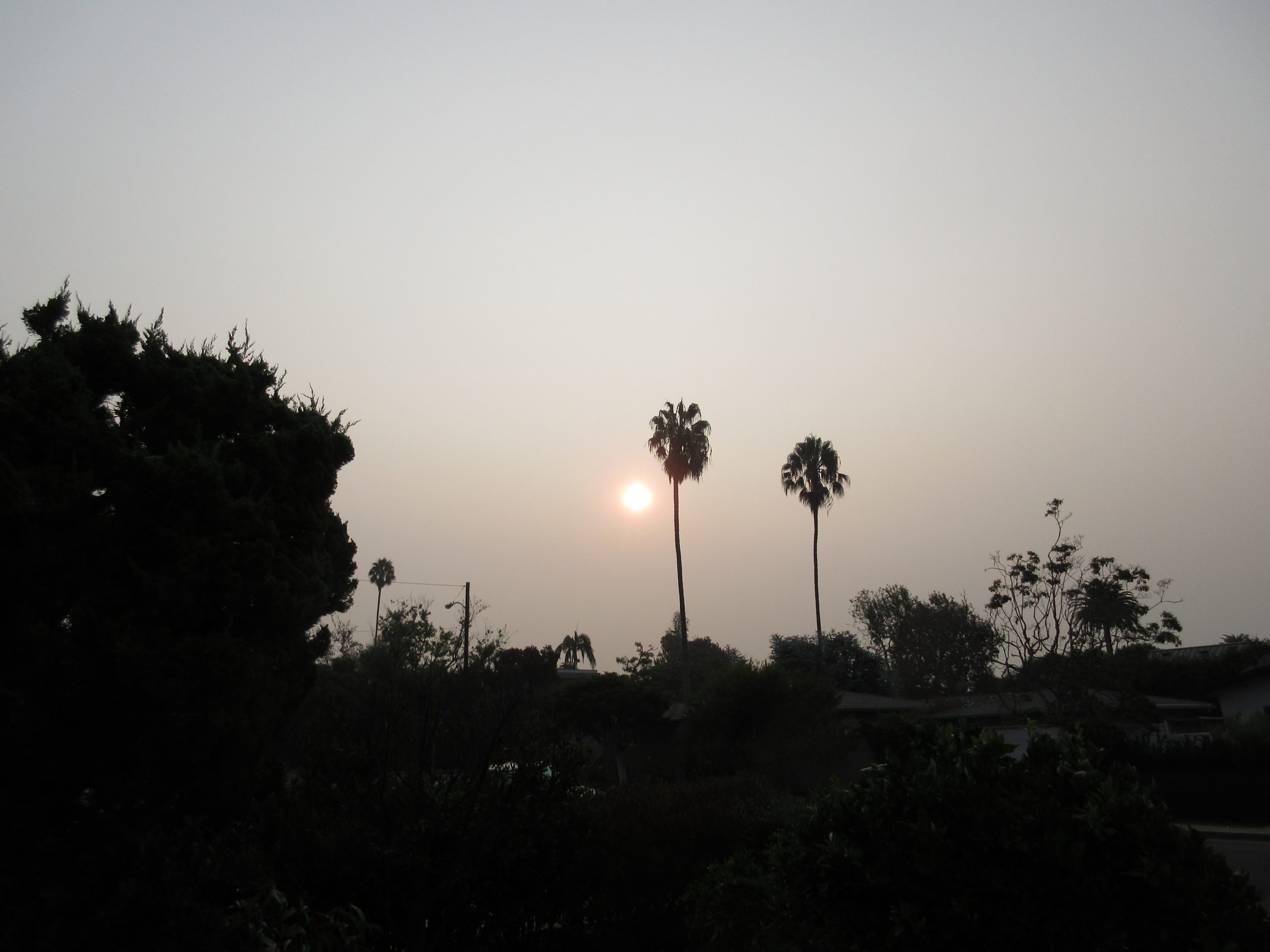With fires raging here in California, the question keeps coming up: how do I deal with fallen ash in the garden? Does it contaminate the soil? Should I eat the plants? These are all good questions. Let’s look at the answers.
First of all, stay safe. The garden is not worth saving if your house is burning down. Get out and get to safety before you assess any damage. But if you are not in the direct line of fire, here are some steps to consider:

Give Everything a Shower – Plants are coated with particulate pollution on any given day, so it’s always a good idea to thoroughly soak and rinse your produce before eating it, whether you live in an urban or rural area. Engine exhaust, pesticide drift, and nighttime animal visitors are all possible contaminates on produce. Fire ash contains chemical residues from whatever was burned, including plastics. But…
According to University of Oregon State, ash is not likely to penetrate leaf surfaces or to be absorbed into fruits and veggies. Hose down your plants daily and soak veggies at least 20 minutes in water before consuming. To be extra safe, especially if your garden is located next to a building that burned, soak produce in a vinegar solution (10%).

But What About the Soil?
Test Soil for Contaminates – If you have a lot of fallen ash in the garden, seriously consider taking samples and sending them off to a soil lab for testing. In most cases, your Soil Food Web microbes will process and bind up any heavy metals in the soil, making the soil safe to grow in again. But again, if you live near burning buildings, test the soil first, and take appropriate measures to fortify the soil with the biology needed to manage heavy metals.
Wood ash (in high amounts) makes soils more alkaline, so if you already have alkaline soil, test the pH before amending. Compost and compost tea will help balance soil pH (remember, soil microbes change soil pH according to what the plant’s exudates dictate). Your soil pH is not likely to change after a fire but if you are concerned, do a test. Sheri Powell of Compost Teana recommended this article if you want to learn more about how soil microbes bio-remediate contaminated soils.
Chemical Retardants?
If chemical retardants were dropped in your neighborhood, definitely get a soil test and take recommended action to remediate. A study by the U.S. Geological Survey at the Columbia Environmental Research Center shows that toxins and heavy metals present in chemical fire retardants disperse more quickly (after 21 days) in soils with higher organic matter (3.7 % OM vs. 1.4% OM). Apply compost, mulch, and compost tea to not only add more organic matter to your soil, but to replenish Soil Food Web populations. These guys will get to work to neutralize toxic chemicals.
Waterways remain contaminated longer, or rather, the residues of contaminated waterways have a longer-lasting effect. While the chemicals may disperse after a few days, the effects on fish and other aquatic life mortality rates continue. So clean your ponds if you’ve got them.
So do the right thing and you’ll be able to garden in your soil again soon. Stay safe out there, gardenerds!



Thank you so much for the informational reminders!
Rochelle
You’re welcome, Rochelle!